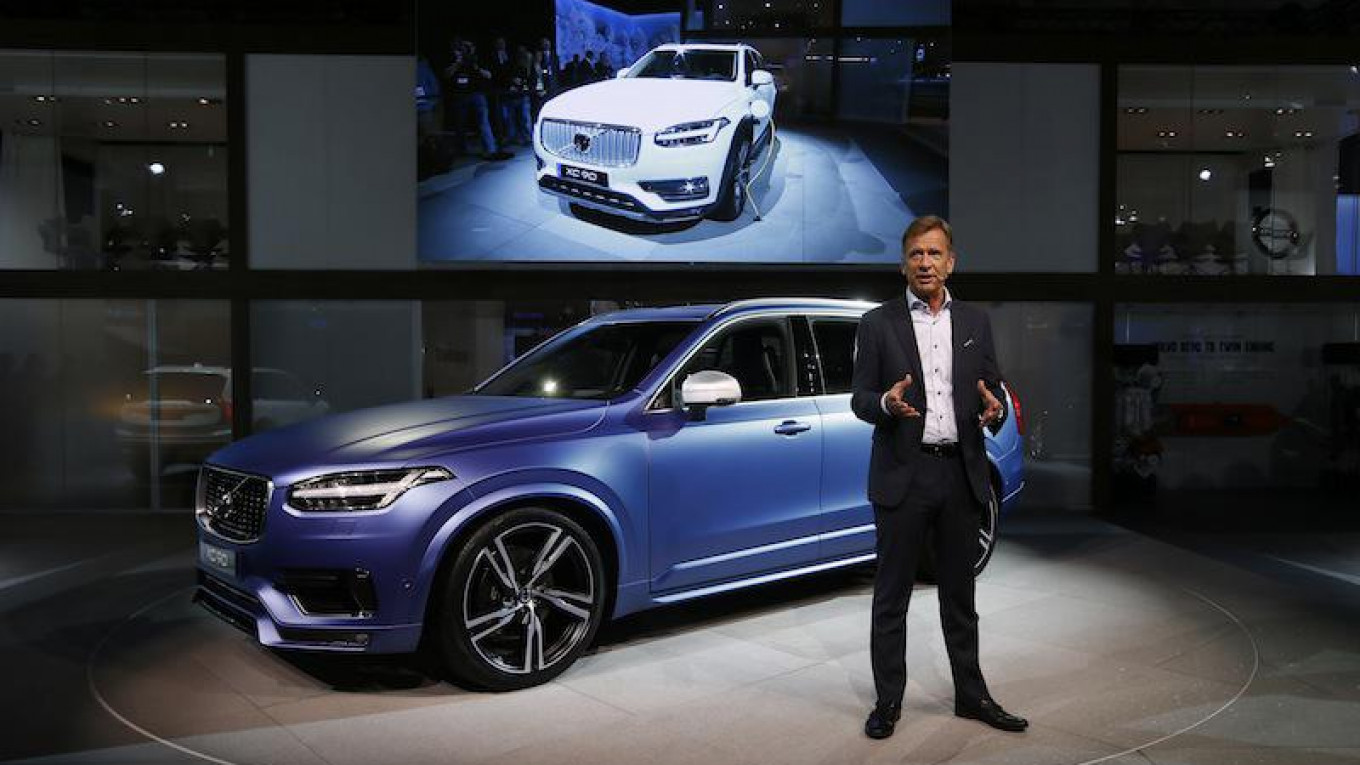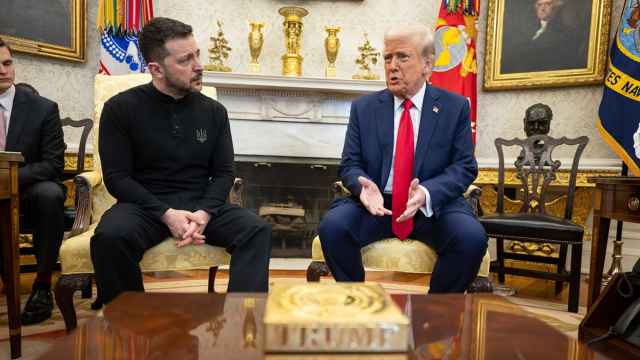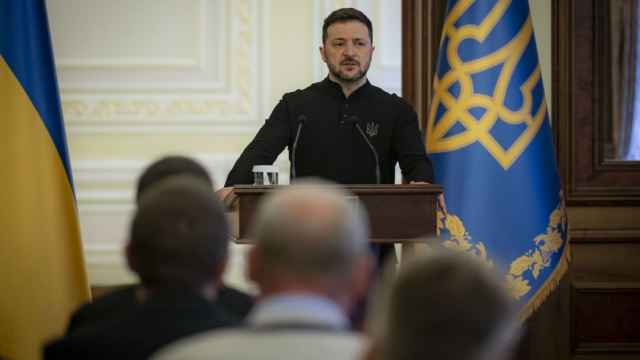Interviewer: Your profit
has tripled during the first half of the year and sales are growing. What future challenges do you see for the company?
Håkan Samuelsson: We have a strong foundation and now we're really entering the next phase of company development, which started the very first day in Paris — when we showed our first new car. Now we need to roll out these cars and that's what we're starting now. At the moment I think we are doing well with the XC90 but in other areas, especially here in Russia, we have a larger gap brand-wise than in other countries. It's a challenge for us to convince Russian consumers that we have a really top premium product.
Interviewer: What are the reasons behind your decision to visit Russia?
HS: I've never been here so I think it's very interesting to get a perception of what's going on. We have had a difficult time [in Russia] since the start of the crisis and I've seen declining volumes. I hope this year we will begin to see the drop slowing down.
Interviewer: So will you stay? You know that JEM left Russia and then Honda left Russia and I suppose your dealers were scared that Volvo would also leave.
HS: No, we will definitely stay. It's the biggest country in Europe so you have to be present in Russia if you're going to be a global company. Leaving is not on our agenda. But when the currency drops down to half of its original value you have to try and save costs to survive.
Interviewer: Can you help your dealers to survive?
HS: They have to follow our example: look at their costs and work on service. They have had three very tough years, but with positive thinking about the new interesting cars coming in, we can move on.
Interviewer: Currently Volvo has been making headlines for autonomous driving. You just announced that you would form a joint venture with Autoliv to develop autonomous driving software. Could you please tell us more about the project?
HS: To make effective autonomous cars we need to make steering, braking, and other systems redundant while ensuring safety. We have been developing a car like this with Uber, which we presented some weeks ago, so we will share the cost for that and have a good base car. They will install their own software which can handle moving people from A to B. We will use the same car and put in other autopilot software. I heard that some people in Moscow sit in three-hour traffic jams so I think they would love to have such a car. Then they can host a videoconference or do whatever they want. Autopilot software requires a certain know-how. You need computer vision, sensors, and radars that can see what is ahead of the car. Then you need another type of software to make the decisions.
Interviewer: How much are you going to invest in the first stage?
HS: It remains to be seen but we will invest 50/50. About 200 people will be on the payroll in January/February.
Interviewer: So you will send in existing engineers from Volvo?
HS: We will also hire, but initially everybody who currently works with Volvo will work with the new company.
Interviewer: What do you expect from the results?
HS: They will develop software for the next generation of active safety and those products will come out around two years from now (2019). And then full autonomous-driven software for a full autonomous car around 2021.
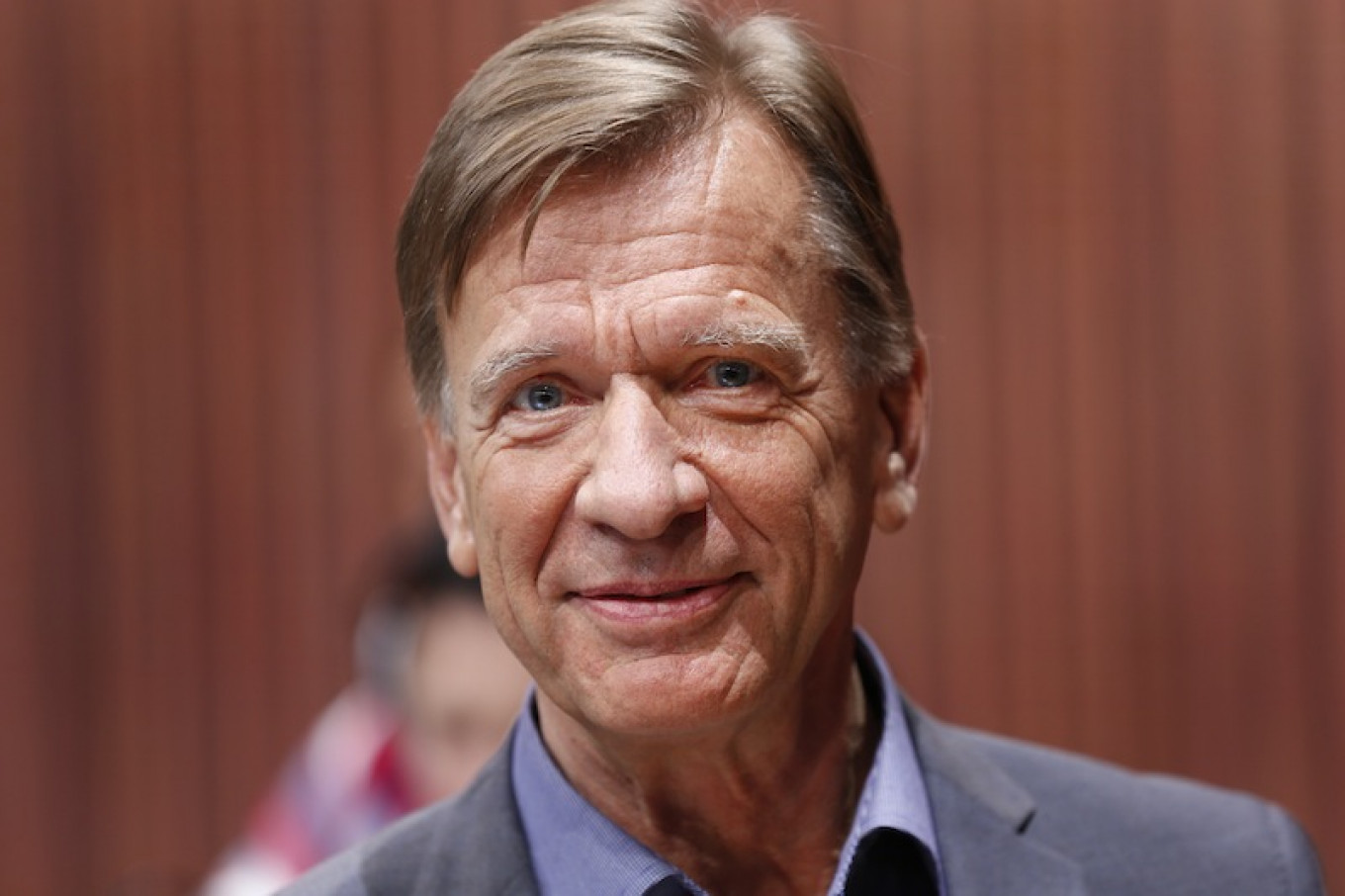
Interviewer: Currently one of the main concerns is how all these cameras and sensors would work during wintertime, in snow or rain. For Russia that's very important. Do you have ideas about how that should work?
HS: I think we have experience there because we have autopilot and auto-braking systems. They have to work in winter of course and I think it's a very good question because it's a major challenge. Other companies like Google have fully automated cars that can take you from A to B. But if there's snow these cars will not work. If it's dark or raining it will also not work so they have other limitations. It could take you from A to B but ...
Interviewer: Only in California.
HS: Only in this environment, without rain or snow. So the autopilot we have will work only on the highway, but it has to work in rain or sunshine or snow. The challenge with autonomous driving is identifying objects. You have to quickly build up an exact model of the road ahead of you so you need very fast computers. There are a lot of things to learn here and you also have to work with all sorts of computer and machine learning technology. It is a very exciting challenge for young engineers.
Interviewer: Volvo has also announced
that you will take full responsibility for accidents with autonomous cars but
how will you achieve this? Through an insurance company or assurance with your
technology?
HS: It is something that needs to be sorted out. Their car needs to be insured legally but we should take responsibility for our autopilot, if it malfunctions it is our responsibility. It is more or less like today, if the brake system does not work and an accident occurs, the insurance company will come to us and then we will be liable for that. The systems and everything should work. But of course there is always the driver's behavior and sobriety that has to be covered in a normal way like today.
Interviewer: Another important key for autonomous driving is connectivity. Do you develop this technology as well?
HS: That is what I call a smart cloud solution. You have to communicate through a cloud to other cars. You need over-the-horizon vision.
Interviewer: Ideally it should be one global system like mobile protocol, that all cars should talk to each other.
HS: Yes, and there are a lot of initiatives for that but it is tricky. Volvo will have a cloud where all our cars are connected. BMW will have the same, we just need to secure cloud-to-cloud communication so we can really utilize all this information and this will come.
Interviewer: So the connection will be via clouds or directly car-by-car?
HS: It could be directly car-by-car also but most probably it goes over the connectivity where you have to go to the closest antenna for very rapid communication. Car-to-car Bluetooth is not as reliable.
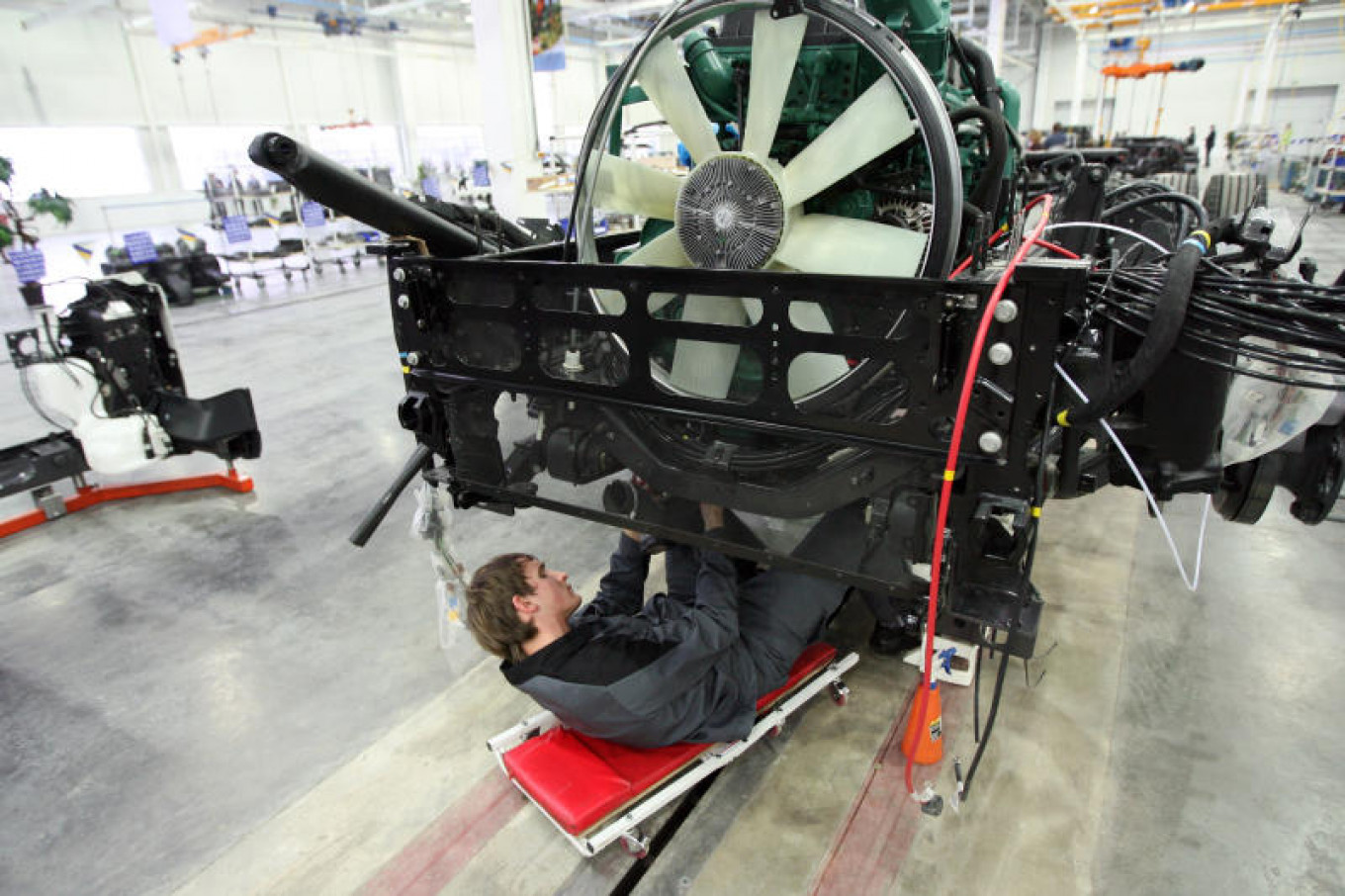
Interviewer: So your other goal is to make 1 million electrified cars by 2025. The infrastructure in cities and countries will be ready by that time?
HS: Nobody will invest if they don't get the signal that there will be cars. It's why we decided to say let's make a clear statement on what we believe regarding emission and car propulsion. Going electric seems to be the best way but of course we have a lot of question marks in terms of electrification. You come home in the evening and in the morning you have 50 kilometers of electric battery in your car. When those batteries empty you still continue then you are back to normal. It basically does not need any fast-charging infrastructure. In 2019 when our full electric cars come out they need to have a larger range, 400-500 kilometers.
Interviewer: Which car will that be?
HS: It is decided but not previewed yet. It will be more than one car. The very first one will come out in 2019 and those cars will need a fast charging infrastructure because of the range extension. If you are going out to ski 700 kilometers away then you need to charge half way, and that needs to be done in maybe half an hour, something acceptable and similar to filling up. We need partners but cannot sit and wait until somebody does it. We have to give somebody the signal that we are interested and bringing out 1 million cars and others are making similar commitments so there are people now investing into such a network.
Interviewer: So generally how do you see the future of mobility in the world? Some cities support electric cars, others don't?
HS: I think political support is important but you cannot rely on that. If we build electric cars and they work only through subsidies and incentives it doesn't work. We have to have affordable commercial solutions. It cannot just be a green car; no one will pay for that. It has to be something more: a twin engine, 400 horsepower, super performance and the possibility to charge. Then it is possible to sell. So the next step is to make it affordable. I think Tesla is a good example; they are not relying on subsidies. I think we cannot sit and complain about political support or whatever. We have to dare to make electric cars.
Interviewers: Do you believe in car sharing if the technology of autonomous driving would work?
HS: Absolutely. To come back to your question, first is propulsion, and then electrification. Then you have the automobile of the future. It is very difficult to think of a concept in big cities where people have private cars parked 95 percent of the time and used 5 percent of the time. It isn't sustainable. I think there will be these types of shared mobility solutions and that the role for us is to supply those companies, which is exactly why we chose to work with Uber. We think it will be a very profitable role for us, supplying automated cars to taxi companies because the list of companies who could deliver that car will be much shorter. That's a way for us to participate in this new shared mobility solution for urban cities. Then we can also be part of the more premium market where there is an emotional part of the car too. You have a premium car with autopilot and electric drive, that will still be a good market for us. I think the guys who just build cars that can bring you from A to B will lose the emotional part and have problems with Uber, etc.
A Message from The Moscow Times:
Dear readers,
We are facing unprecedented challenges. Russia's Prosecutor General's Office has designated The Moscow Times as an "undesirable" organization, criminalizing our work and putting our staff at risk of prosecution. This follows our earlier unjust labeling as a "foreign agent."
These actions are direct attempts to silence independent journalism in Russia. The authorities claim our work "discredits the decisions of the Russian leadership." We see things differently: we strive to provide accurate, unbiased reporting on Russia.
We, the journalists of The Moscow Times, refuse to be silenced. But to continue our work, we need your help.
Your support, no matter how small, makes a world of difference. If you can, please support us monthly starting from just $2. It's quick to set up, and every contribution makes a significant impact.
By supporting The Moscow Times, you're defending open, independent journalism in the face of repression. Thank you for standing with us.
Remind me later.


